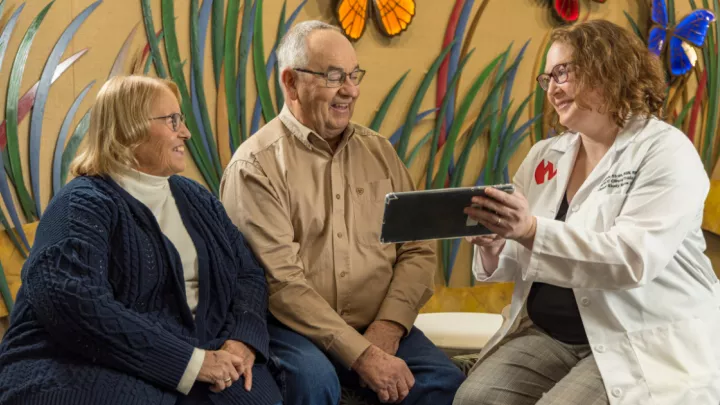Researchers study CAR-T cell therapy for solid organ tumors

A research study is exploring the use of CAR-T cell therapy, which has been successful in treating certain blood cancers, against solid tumors.
CAR-T cells are a subtype of T cells, part of the body's immune system. CAR-T cells are engineered to target specific proteins on cancer cells.
Currently, CAR-T cell therapy is approved to treat blood cancers, such as certain types of lymphoma and leukemia. However, there are obstacles to using the therapy to treat solid tumors, says Apar Kishor Ganti, MBBS, medical oncologist and the study’s principal investigator.
“Unlike blood cancers, solid organ tumors tend to be more complex, and there’s not one single protein that is expressed on these tumor cells in all patients,” Dr. Ganti says. “So, it has been a challenge to try and identify specific proteins which these T cells could be activated against.”
Dr. Ganti’s team is studying P-MUC1C-ALLO1, a CAR-T cell therapy derived from healthy donors’ immune cells. These cells are trained to target a protein commonly found on solid tumor cancer cells, Mucin1.
The study is designed as a “basket” trial, which means it includes patients with different types of cancers. These include breast, ovarian, colorectal, lung and pancreatic carcinomas.
“Since this protein is present on multiple different cancer cells, any patient with these cancers can potentially be eligible for this study,” Dr. Ganti says.
Participants in the research study must have normal liver and kidney function and be strong enough to withstand the chemotherapy required to suppress their native immune systems.
“The reason for this is, if we had an intact immune system present, these CAR-T cells would be immediately destroyed by the body's immune system because they are foreign cells, and our body is trained to kill anything foreign,” Dr. Ganti explains.
Additionally, patients must have exhausted or not be eligible for other types of treatment.
The research study is in its early phase, which involves careful selection and monitoring of patients. It will proceed in a staggered manner to ensure patient safety and manage potential side effects
While the study currently excludes patients who have received previous immunotherapy, efforts are underway to expand eligibility. “That’s another challenge because immunotherapy is now part of standard treatment for most cancers. But that is something we are working on,” Dr. Ganti says.
For more information, contact Megan Edwards at 402.559.1952 or megan.edwards@unmc.edu.
Clinicaltrials.gov NCT05239143
IRB number: 0383-23-FB







